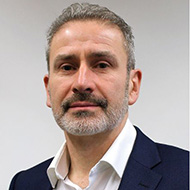Four-year behaviour plan transforms frightened donkey
The team are optimistic about Polly's (middle) future.
A frightened and defensive donkey has shown significant progress through four years of rehabilitation at the Donkey Sanctuary.
Fourteen-year-old Polly was admitted to the rescue centre in 2020, after her extreme defensive behaviour became too much for her owners to manage.
Soon after arriving at the sanctuary, Polly began to display her anxiety around people. When near to grooms, Polly’s ears would flatten and she would reverse at speed towards them while bucking.
The grooms assessed that Polly had experienced a past where she had had to use these behaviours to defend herself.
They believe she had then learned that extreme behaviour and physicality was the best way to avoid being handled.
During her stay at the New Arrivals Unit, provisions were made not only to protect Polly, but also to ensure the welfare of the grooms and behaviourists. Polly was also assigned a small area of the yard as a handling pen, where she would be unable to charge at the grooms.
Her behaviour remained unpredictable, which posed a challenged for her carers. After appearing calm, Polly would quickly become tense and start swinging her feet.
However, the team still believed that what Polly longed for was a human connection.
After making some progress at the New Arrivals Unit, she was moved to Axnoller Farm, where equine behaviourists continued to tackle her anxieties.
Here, in February 2023, she began a new behaviour modification programme, which has proven to be effective. So far this has included more than 40 short sessions, gradually introducing her to new experiences in a controlled environment.
Processes were broken down into several smaller steps, carried out across a number of weeks.
Polly will now allow a groom to run their hand down her front legs towards her feet, and can have her feet picked out in private. Where she would have previously become tense, she is now able to remain calm.
Although there is still progress to be made on Polly’s rehabilitation journey, the team are optimistic for her future.
Kerry Layton-Hill, an equine behaviourist at Axnoller Farm, said: “The team at Axnoller had so much trust in the process. Above all, they had the patience to see it through.
“Polly was a remarkably challenging donkey when she arrived in Dorset, and it is testament to everyone here that she can trust people again.”
Image © The Donkey Sanctuary



 NOAH has elected its board team, as part of its annual general meeting.
NOAH has elected its board team, as part of its annual general meeting.